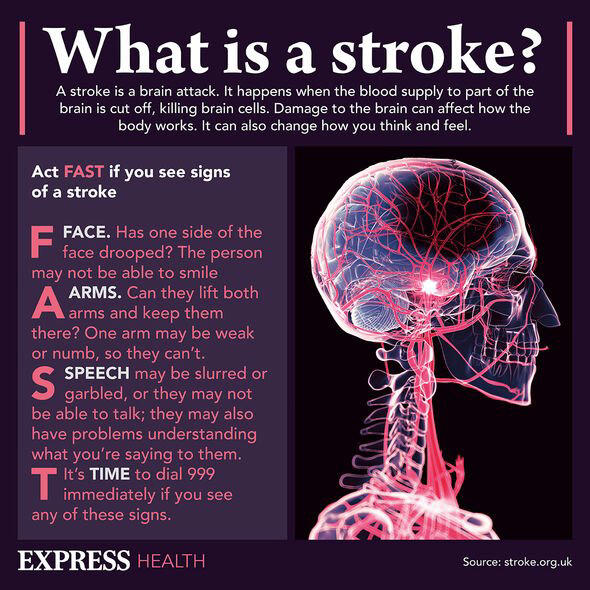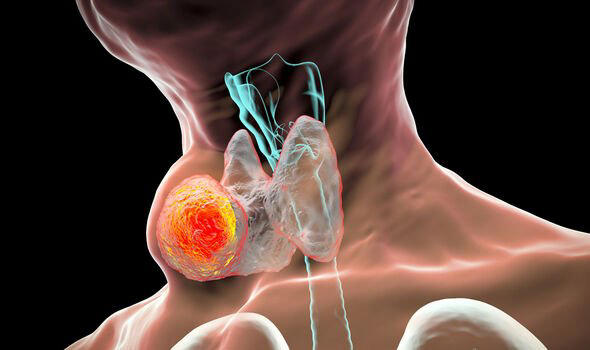Black pepper: Experts weigh in on health benefits, nutrition facts, and more











Black pepper: Experts weigh in on health benefits, nutrition facts, and more
Faith Seke, PhD, Agronomy and Crop Science (ongoing)/Master's degree, Food Science and Technology/Bachelor's degree in food science and nutrition honor's degree and Leticia Soares, Postgraduate Degree in Public and Family Health/Bachelor Degree in Nutrition and Dietetics - Tuesday
Black pepper image© Provided by Getty Images
Benefits
- Black pepper is rich in piperine which has antioxidant properties, and may help in preventing or delaying the effects of free radicals. Piperine also helps in improving brain function.
- Black pepper contains active compounds that decrease inflammation in the human body.
Possible Side Effects
- Black pepper can result in potassium loss, acid reflux and nausea. It can also cause some allergic reactions such as hives, rash, swelling and sneezing.
- Black pepper has antioxidant properties. Black pepper can help reduce the production of free radicals, which are toxic substances that can facilitating the development of cancer cells.
- Black pepper has thermogenic properties. As most of the peppers, black pepper help speed up metabolism, resulting in an increase in caloric expenditure.
-
- Black pepper contributes for better digestion. The pepper increases the production of hydrochloric acid, which improves protein digestion, preventing symptoms of poor digestion.
- Black pepper improves the absorption of some nutrients. The seasoning acts on digestive enzymes, increasing the absorption of vitamins B and C, selenium and beta-carotene from the meal.
- Black pepper has anti-inflammatory properties. There are several studies that prove the anti-inflammatory action of black pepper. It helps even alleviating symptoms of rheumatic diseases such as arthritis and arthrosis.
Possible Side Effects
- The consumption of black pepper should be avoided by patients who have gastric problems such as gastritis, ulcers, diverticulitis and hiatus hernia.
- Some individuals can develop allergic reactions to black pepper. The symptoms of this allergic reaction include rashes on the skin, itching in the mouth, watery eyes and other symptoms.
This is for information purpose only, and should not be considered as a substitute for medical expertise. These are opinions from an external panel of individual doctors, and not to be considered as opinion of Microsoft. Please seek professional help regarding any health conditions or concerns.
Reference: Microsoft Start Health:
The One Snack Cardiologists Want You to Eat for a Healthier Heart
















The One Snack Cardiologists Want You to Eat for a Healthier Heart
Your heart is like the engine of a car — without it, your body can't run properly. Your heart beats about 2.5 billion times throughout your lifetime, working tirelessly to pump blood throughout the body and support essential bodily functions, according to Harvard Health Publishing.
Considering the importance of the heart, it makes sense to adopt a heart-healthy lifestyle. This includes exercising regularly, following an overall healthy diet pattern and avoiding tobacco products, per the American Heart Association.
With so much nutrition information out there, trying to figure out how to eat for your heart health may seem challenging. But according to cardiologists, you could reap major benefits by simply adding a handful of pistachios to your daily routine.
There's no scientific proof that eating any one food will lower your risk of heart disease.
Eating a heart-healthy diet means limiting foods high in saturated fat and including more fatty fish, whole grains, fruits and veggies, legumes and nuts and seeds, per the American Heart Association.
1. Pistachios are Associated With Lower Cholesterol
One of the first indicators of a healthy heart is your cholesterol levels. There are two types — LDL and HDL. High levels of LDL cholesterol can raise your risk of heart disease, so it's often referred to as "bad" cholesterol, according to the CDC. Meanwhile, higher levels of HDL cholesterol can lower your risk.
One way to improve cholesterol levels is with the help of a healthy diet, per the National Library of Medicine (NLM). This involves choosing healthy fats, such as nuts, to make up anywhere between 20 and 35 percent of your daily calories.
"Most of the fat in pistachios are unsaturated fats, which are linked to lower cholesterol," explains Jim Liu, MD, a cardiologist and Clinical Assistant Professor of Internal Medicine at The Ohio State University Wexner Medical Center. "There are studies specifically linking pistachios to lower LDL cholesterol levels."
It's true: A small study showed including pistachios can improve total cholesterol levels and other metabolic risk factors in adults with type 2 diabetes, according to results in the November 2016 issue of Metabolism.
2. Pistachios Are Linked to Lower Blood Pressure
Blood pressure (aka hypertension) is another marker of heart health. It's often referred to as the "silent killer" because it usually has no warning signs but can increase the risk of heart disease and stroke, according to the National Institute of Health (NIH).
The Dietary Approaches to Stop Hypertension (DASH) diet is often recommended to those with hypertension. It's a low-sodium eating plan created by the National Heart, Lung and Blood Institute. The plan calls for two to three daily servings of healthy fats and four to five weekly servings of nuts, seeds, beans and peas. Regular servings of pistachios are encouraged on the DASH diet.
Eating 1.5 ounces (or about a handful) of pistachios daily was associated with lower systolic and diastolic blood pressure, according to June 2020 research in Nutrients.
3. Pistachios Are Rich in Fiber
Dietary fiber is an important nutrient for overall health. It aids in digestion, weight loss and even heart health. People who eat the highest amounts of fiber have a significantly lower risk of heart disease and heart disease mortality, according to a December 2017 review in the Journal of Chiropractic Medicine.
Specifically, a high-fiber diet supports heart health by helping to lower cholesterol, blood pressure and inflammation, according to the Mayo Clinic.
An ounce of pistachio nuts has 3 grams of dietary fiber, or roughly 11 percent of your Daily Value (DV), according to the USDA. The average adult requires between 20 and 35 grams of fiber per day, per the 2020-2025 Dietary Guidelines for Americans.
4. Pistachios Have Antioxidants
One of the most important nutrients relating to heart health is antioxidants. This includes vitamins C and E, selenium and beta carotene, according to the Cleveland Clinic. Antioxidants support heart health by fighting oxidants (aka free radicals), which can cause cellular damage and have been linked to heart disease.
"High antioxidant levels can lower the risk of heart disease," says Ankit Shah, MD, a sports cardiologist and Assistant Professor of Medicine at Georgetown University Medical Center. Pistachios are especially rich in the antioxidants vitamin E, polyphenols and the carotenoids lutein and zeaxanthin, per the Cleveland Clinic.
Compared to other nuts, pistachios have the highest levels of antioxidants like vitamins E and K, carotenoids and thiamin, according to an April 2015 review in The British Journal of Nutrition. In fact, they're in the top 50 antioxidant foods, according to a December 2021 review in Plants.
5. Pistachios May Support Healthy Blood Sugar
One of the heart health benefits of pistachios has to do with blood sugar. There's even a link between diabetes, a blood sugar condition, and heart health: Over time, high blood sugar can damage blood vessels and the nerves that help control your heart, and those with diabetes may be at increased risk for heart disease, according to the CDC.
Eating pistachios has been associated with lower blood sugar and insulin levels and better overall metabolic health in people with prediabetes, according to an October 2014 clinical trial in Diabetes Care. That means a healthy heart!
How Many Pistachios Should You Eat?
"Like most other things in life, moderation is key," Shah says. Pistachios are high in calories, so even small servings add up quickly.
A serving of pistachios is about 1 ounce or 28 grams, according to the Cleveland Clinic. This equals about 159 calories, per the USDA. To keep sodium levels in check, opt for unsalted raw pistachios for a heart-supporting, cardiologist-approved snack.
Reference: Livestrong.com: Lacey Muinos
Hypothyroidism symptoms: Changes in your voice could signal ‘extremely low' thyroid levels
















Hypothyroidism symptoms: Changes in your voice could signal ‘extremely low' thyroid levels
n hypothyroidism, the butterfly-shaped gland that sits at the front of the neck does produce enough thyroid hormones. This causes slowing of the metabolism, which is characterised by tiredness, brain fog and weight gain. If low levels are left uncorrected for too long, changes may also occur in a person's voice.
Voice characteristics in patients with hypothyroidism were explored in one study published in the Eurasian Journal of Medicine in 2019.
The researchers found that hypothyroidism can cause notably notable voice changes, such as low voice, roughness, reduced range and vocal fatigue.
Dysphonia, on the other hand, can be caused by excessive thyroid hormone production or hyperthyroidism, found the researchers.
Doctor Reena Gupta, director of the Division of Voice and Laryngology at the Osborne Head and Neck Institute, broke down some of the reasons the body experiences these changes.
The expert explained: "The thyroid gland serves an extremely important role in the body.
"Thyroid hormones are responsible for the body's homeostasis, the body's basic functioning, including the metabolic rate, heart and digestive function and muscle control.
"As such, disorders of hormone production can affect all the systems in the body. The thyroid can also compress or invade nearby structures when it enlarges or has growths within it".
If thyroid issues are the cause of vocal changes, the onset of a hoarse voice is likely to be slow and gradual.
According to the website Thyroid Symptoms, this often leaves sufferers with a vocal quality that is often described as "shaky".
"When thyroid hormone levels are extremely low and uncorrected, the vocal folds may develop a thickening of the vibrating layer," adds doctor Gupta.
"This is called myxoedema and can occur in other areas of the body as well. Myxoedema is a gelatinous thickening of the vocal folds, which causes a harsh, 'smoker's voice'".
Who's at risk of hypothyroidism?
Hypothyroidism can be caused by Hashimoto's disease, which occurs when the body's immune system comes under attack.
People who are older than 60 or who have a family history of thyroid disease, are also at an increased risk of hypothyroidism.
Unfortunately, apart from avoiding modifiable risk factors, there is no way to avert the condition.
People who may have a higher risk of thyroid issues would benefit from regular checkups by their doctor, in case they need additional iodine.
Spotting the symptoms of an under-active thyroid early will also lower the impact the condition has on a person's life.

Besides voice changes, other symptoms to expect are:
- A puffy face
- Sensitivity to col
- Constipation
- Slowed heart rate
- Memory decline.
Standard treatment for hypothyroidism, in the form of synthetic thyroid hormone levothyroxine, can help ease these symptoms.
The drug is best absorbed on an empty stomach at the same time every day, ideally an hour before eating or taking other medications.
Loading up on rich vegetables, whole grains and healthy fats may also help improve energy levels and help patients achieve a healthy weight.
Reference: Daily Express: Solen Le Net
Seemingly 'harmless' non-alcoholic drink linked to blood clots in the small arteries














Seemingly 'harmless' non-alcoholic drink linked to blood clots in the small arteries
Blood clots can be life threatening if they block veins or arteries. Coagulation in these areas can cause strokes and heart attacks. According to a study published in the journal Stroke, diet drinks, such as diet coke and diet fruit juice, are associated with an increased risk of blood clots of the small arteries.
esearchers looked at 81,715 women ages 50 to 79, who enrolled at 40 clinical sites across the United States between 1994 and 1998.
In addition to blood clot formation, the study found that compared with those who never or rarely drank diet beverages, women who drank two or more artificially sweetened drinks a day had a 31 percent increased risk of ischaemic stroke, which occurs when a vessel supplying blood to the brain is blocked.
In women with no prior history of cardiovascular disease or diabetes, high intake of diet drinks more than doubled their risk of small artery occlusion, a specific type of ischaemic stroke that occurs when blood flow is blocked to a very small arterial vessel.
This is one of the first studies to look at links between diet drinks and the risk of a specific type of stroke.
Women who consumed two or more diet drinks a day were also 23 percent more likely to have strokes, 29 percent more likely to develop coronary heart disease and 16 percent more likely to die from any cause. Reasons for these links are not yet known; researchers say findings deserve further study.
"These are very interesting findings that raise many additional questions," said Shirley Beresford, co-author and senior associate dean and professor of epidemiology at the University of Washington School of Public Health.
"Part of what makes this study important is that people who regularly drink soda or other sugary beverages tend to switch to artificially sweetened beverages to lose weight, when the ideal is to substitute with water."
Researchers also found risks were higher for certain women. Heavy consumption of diet drinks more than doubled stroke risk in African-American women and obese women.
These findings show that we shouldn't assume [diet drinks] are harmless when you consume them at high levels", said Yasmin Mossavar-Rahmani, associate professor of clinical epidemiology and population health at Albert Einstein College of Medicine, who also led the study.
The cohort of women included in this study is from the Women's Health Initiative, a long-term, national research effort focused on strategies for preventing heart disease, breast and colorectal cancer, and osteoporotic fractures in postmenopausal women.
Study participants initially filled out questionnaires on demographics, medical and family history and lifestyle factors, and had physical examinations.
Researchers followed up with women every year with a survey asking about adverse health events in the previous 12 months and with a medical record review. Study doctors reviewed potential cardiovascular disease events.

At the three-year follow up, women were invited for clinic visits to assess health outcomes and consumption of diet beverages.
The study adjusted for demographics, cardiovascular disease history, body mass index, health behaviours and overall diet quality.
"In this very large study, a modest increased risk for stroke was found, but it is too early to draw definite conclusions," Professor Beresford noted. "There is still much to be learned."
Researchers acknowledged that the study was observational, rather than a clinical trial; therefore, results must be interpreted with caution.

Future studies are needed to replicate the findings to examine specific diet beverages in relation to stroke and other outcomes to guide clinical recommendations.
Tips to ward off blood clots
According to the NHS, you should:
- Stay active - taking regular walks can help
- Drink plenty of water to avoid dehydration - you're more likely to get a clot if you're dehydrated
- Try to lose weight if you're overweight
- Wear flight stockings or flight socks to improve your blood flow on long flights - a pharmacist can advise you about this.
"If you're at a high risk of blood clots - for example, you're in hospital - follow the advice of your care team about preventing clots," notes the health body.
Reference: Daily Express: Adam Chapman -
Articles - Most Read
- Home
- LIVER DIS-EASE AND GALL BLADDER DIS-EASE
- Contacts
- African Wholistics - Medicines, Machines and Ignorance
- African Wholistics -The Overlooked Revolution
- African Holistics - Seduced by Ignorance and Research
- The Children of the Sun-3
- Kidney Stones-African Holistic Health
- The Serpent and the RainBow-The Jaguar - 2
- PART ONE: DIS-EASE TREATMENT AND HEALTH-3
- 'Tortured' and shackled pupils freed from Nigerian Islamic school
- King Leopold's Ghost - Introduction
- PART ONE: DIS-EASE TREATMENT AND HEALTH-4
- PART ONE: DIS-EASE TREATMENT AND HEALTH-2
- PART ONE: DIS-EASE TREATMENT AND HEALTH-5
- African Wholistics - Medicine
- Menopause
- The Black Pharaohs Nubian Pharaohs of Ancient Egypt
- The Mystery System
- PART ONE: DIS-EASE TREATMENT AND HEALTH-6
Who's On Line?
We have 73 guests and no members online
Ad Agency Remote
Articles - Latest
- The Male G Spot Is Real—and It's the Secret to an Unbelievable Orgasm
- Herbs for Parasitic Infections
- Vaginal Care - From Pubes to Lubes: 8 Ways to Keep Your Vagina Happy
- 5 Negative Side Effects Of Anal Sex
- Your Herbs and Spices Might Contain Arsenic, Cadmium, and Lead
- Struggling COVID-19 Vaccines From AstraZeneca, BioNTech/Pfizer, Moderna Cut Incidence Of Arterial Thromboses That Cause Heart Attacks, Strokes, British Study Shows
- Cartilage comfort - Natural Solutions
- Stop Overthinking Now: 18 Ways to Control Your Mind Again
- Groundbreaking method profiles gene activity in the living brain
- Top 5 health benefits of quinoa
- Chromolaena odorata - Jackanna Bush
- Quickly Drain You Lymph System Using Theses Simple Techniques to Boost Immunity and Remove Toxins
- Doctors from Nigeria 'facing exploitation' in UK
- Amaranth, callaloo, bayam, chauli
- 9 Impressive Benefits of Horsetail
- Collagen The Age-Defying Secret Of The Stars + Popular Products in 2025
- Sarcopenia With Aging
- How to Travel as a Senior (20 Simple Tips)
- Everything you need to know about mangosteen





